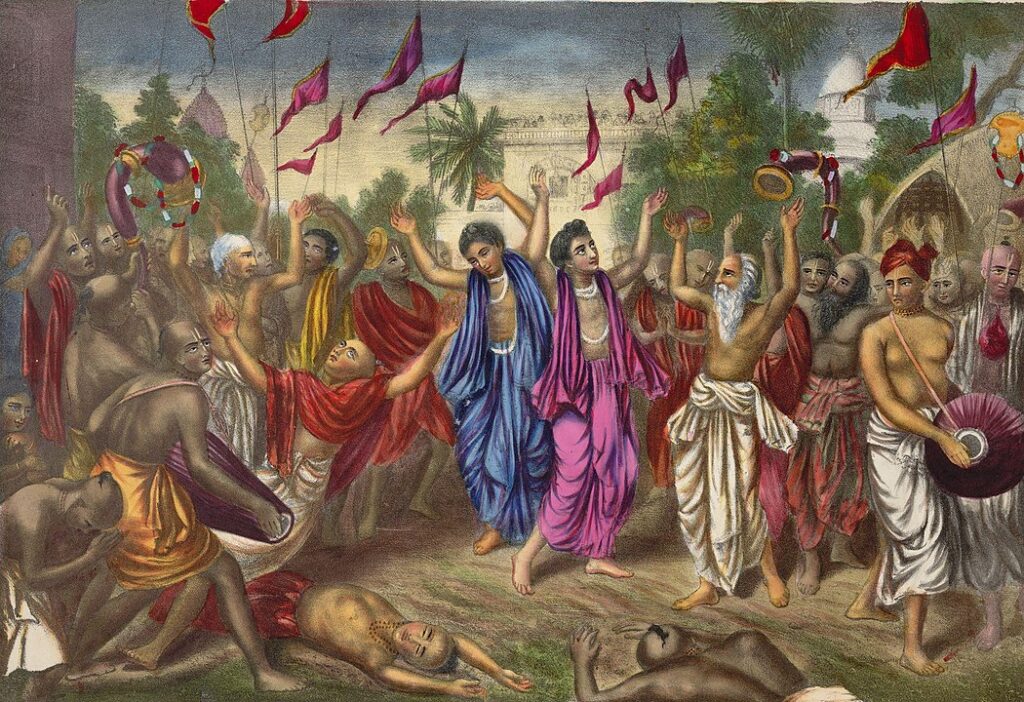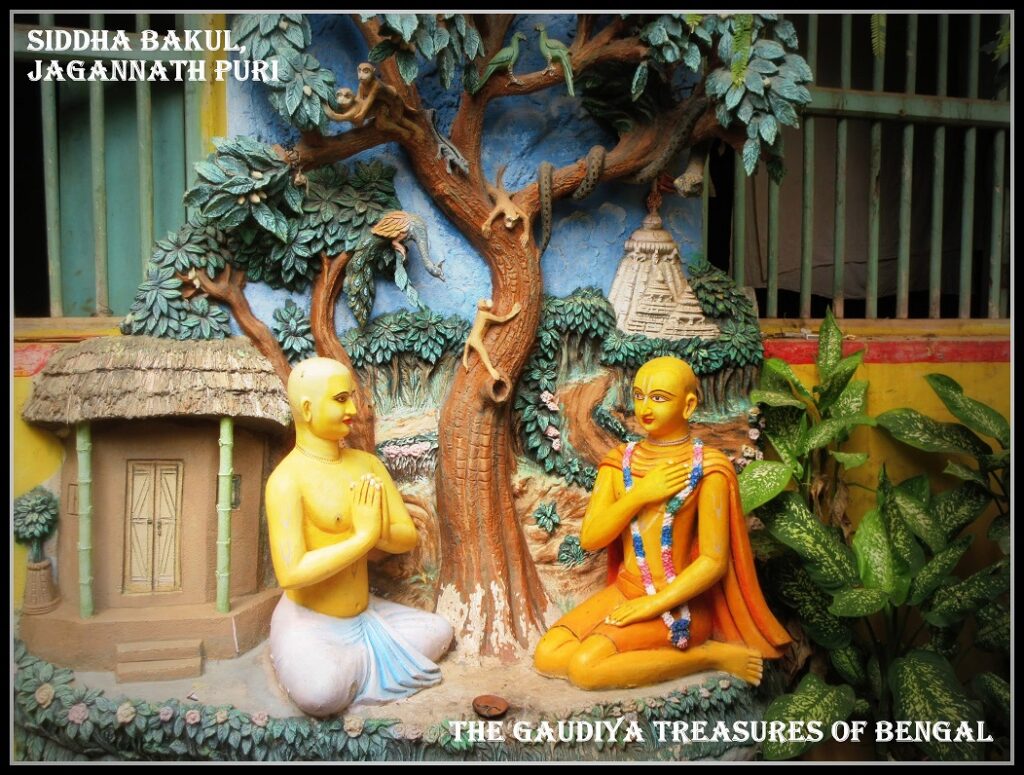
Yoga, contrary to popular opinion, does not refer to some impossible physical postures. The actual meaning of Yoga does not merely refer to bending, curving your body, or even holding your breath. The word yoga is derived from the Sanskrit root ‘yuj’, meaning “to yoke,” or “to unite”. The practice aims to create a union between body, mind, and spirit, as well as between the individual self and universal consciousness. The yoga system was originally meant for realizing God, and all varieties of yoga practice are assumed to bring one to that point. On the other hand, the Bhagavad Gita, an integral part of the great Sanskrit epic Mahabharata, emerges as a significant episode within this timeless narrative, which unveils the history of the ancient world. Approximately 5000 years ago, during the momentous commencement of the legendary Kurukshetra war, Lord Krishna imparted the profound wisdom of Bhagavad Gita to Arjuna. Their profound conversation has since become renowned as one of humanity’s most revered philosophical and religious dialogues. This insightful discourse transcribed by Srila Vyasa deva, was intended for the betterment and enlightenment of all individuals. The Bhagavad gita provides profound perspectives on various aspects of existence such as life, love, yoga, spirituality, the soul, the mind, God, eternity, hope, and happiness.
Bhagavad Gita on Yoga
The Bhagavad Gita, regarded as the most precious gem among the Vedic scriptures, is an invaluable treasure for those who embrace the practice of ‘yoga’. This sacred text illuminates the path of ideal living, expounding its wisdom through a collection of 700 ‘slokas’ divided into 18 chapters. Within these chapters, the Bhagavad Gita presents a comprehensive exploration of various forms of ‘yoga’, serving as a guide to perfecting one’s existence. Central to its teachings are the three prominent paths of Yoga: Karma Yoga, the path of selfless action; Jnana Yoga, the path of transcendental knowledge; and Bhakti Yoga, the path of devotion. Yoga, as a science, transcends sectarian boundaries and is not confined to any specific community or religious belief. Its profound principles and practices are accessible to all individuals seeking liberation from the entanglements of material existence, regardless of their background or affiliations. Yoga offers a universal path that extends its benefits to all sentient beings in their quest for spiritual emancipation.

#1 Karma Yoga
Karma-yoga, the path of selfless action, begins with the profound realization that selfish endeavors only entangle the soul further. By renouncing attachment to the outcomes of one’s actions, one liberates oneself from the karmic reactions associated with self-centered activities. However, this does not imply a complete abandonment of action itself within the realm of karma-yoga; rather, it advocates aligning all activities with a higher purpose.
Karma-yoga encompasses a range of offerings and sacrifices made to various deities, aimed at attaining material blessings in both the present life and the afterlife, all the while avoiding any negative repercussions. At its loftiest level, karma-yoga entails the unwavering dedication of all actions to the service of the Supreme Lord. Those who follow the path of karma-yoga often possess a progressive mindset concerning worldly affairs, with their aspirations frequently directed towards achieving heavenly realms.

In the Bhagavad Gita, Lord Sri Krishna expounds that every creature in this world is born with inherent propensities, which naturally influence their behavior. Therefore, artificially renouncing action proves futile since the conditioned mind and body of an individual are intrinsically shaped by their inherent nature. Instead, one should dutifully perform their prescribed responsibilities in accordance with their nature and offer the fruits of their labor as a devotional offering to the Supreme Lord. The crucial aspect lies in performing actions without becoming attached to the outcomes, devoid of any desire for personal gain or claims of ownership.
Though one may be unable to alter their activities, they can transform the consciousness with which they engage in them. Maintaining a mindset free from envy and lust, one should execute their designated actions with the Lord placed at the center of their endeavors. Such an individual remains unaffected by the binding consequences of their work. This, in essence, encapsulates the essence of karma-yoga—the path of selfless action.
#2 Jnana Yoga
Jnana Yoga, the path of transcendental knowledge, involves deep contemplation, intellectual inquiry, and engaging in philosophical discussions to ultimately gain a comprehensive understanding of reality. Through mental speculation and discernment, Jnana Yoga aims to discriminate between matter and spirit. This path encourages seclusion, study, and renunciation of sensual pleasures, with a focus on minimizing worldly activities and necessities that can deceive the soul. By renouncing material attachments, Jnana Yogis strive for liberation, seeking to transcend the limitations of the material world.
Sri Krishna, in his teachings to Arjuna, asserts that the process of performing actions with the transcendental knowledge of the Supreme (Jnana Yoga) surpasses the practice of Karma Yoga (selfless action) described earlier. To provide Arjuna with a taste of this elevated knowledge, Krishna reveals his own supreme position. He explains how both he and Arjuna have undergone numerous births, but the distinction lies in the fact that Krishna remembers all his past incarnations and activities, whereas Arjuna does not. Krishna discloses that he descends in various forms throughout the ages, whenever righteousness declines, to annihilate the miscreants, protect the righteous, and reinstate religious principles. Furthermore, Krishna elucidates how the three modes of material nature (goodness, passion, and ignorance) and the corresponding types of work associated with them (administrators, businessmen, laborers) are created by him to suit the desires of living entities. Although he is the creator of this system, Krishna himself remains unaffected and unentangled by the modes of nature.

Arjuna learns about the exemplary lives of great personalities who have achieved perfection by wielding the sword of transcendental knowledge, specifically the knowledge of Lord Krishna as the Supreme Personality of Godhead. Such knowledgeable individuals, whose endeavors are devoid of material desires, are never bound by the reactions of their actions. Equipped with the weapon of Jnana, they remain satisfied and independent, even while engaging in various undertakings.
Having received Lord Krishna’s teachings on both Karma Yoga and the significance of Jnana, Arjuna becomes perplexed. He finds the path of action and the cultivation of knowledge seemingly contradictory. Thus, he seeks clarification on whether renouncing work or engaging in work is superior. Krishna responds by explaining that work performed in devotion is always superior to renunciation of work. The true renunciant is one who neither hates nor desires the fruits of their actions. Such individuals easily transcend the modes of material nature and attain complete liberation. Devoted souls who offer the results of their activities to the Supreme Lord experience pure and undisturbed peace. In contrast, those who are not in union with the divine, driven by greed for personal gains, become entangled in the process of material existence.
Therefore, Lord Krishna instructs Arjuna to diligently perform his duty and act for the satisfaction of Krishna. Simultaneously, he advises Arjuna to fix his consciousness upon the Supreme Lord and recognize Krishna as the supreme mystic, the master of all creation, and the ultimate goal of all sacrifices and austerities. By acting in such consciousness, one attains true peace and fulfillment that is otherwise unattainable for embodied beings.
#3 Bhakti Yoga
Bhakti Yoga, the process of reawakening the profound and transcendental loving relationship between God and the living entity, is a sublime and sacred path. It represents the purest form of devotional service, untainted by any traces of Karma (fruitive activities) or Jnana (speculative knowledge). The practitioner of Bhakti Yoga, known as a devotee, finds solace in incessantly serving the Lord, offering their mind, intellect, and all senses in loving devotion. This practice of Bhakti Yoga purifies the practitioner, liberating them from all material designations. With the attainment of pure love for God, the devotee transcends the desires for mundane pleasures and no longer laments over material losses. Freed from all attachments and detachments, they derive no pleasure from worldly possessions.

In the teachings of the Bhagavad Gita, Bhakti emerges as the most recommended path. Krishna reveals that while Bhakti Yoga may initially appear straightforward, as it becomes perfected and the practitioner matures, it incorporates and encompasses all other forms of yoga. Bhakti encompasses various expressions, including external and symbolic worship of the deity, acts of pilgrimage, and sophisticated inner practices like mantra meditation. It has been erroneously portrayed as suitable only for those inclined towards emotional rather than intellectual pursuits, yet thinkers such as Ramanujacharya, Madhvacharya, and Vallabhacharya have refuted such claims. Their theologies emphasize the significance of developing Bhakti based on spiritual knowledge and stress the role of grace received through the guru (spiritual master) as a medium of God’s mercy. Bhakti-yoga is sometimes considered the synthesis and ultimate goal of karma and jnana, surpassing both the pursuit of material results and liberation, and instead aiming for pure and selfless service to the Supreme Lord.
The practice of Karma Yoga gradually guides individuals into the realm of transcendental knowledge. Engaging in work with higher understanding gradually situates them in a state of transcendence, liberating them from the entanglements of material nature. By controlling their mind and senses, and through appropriate practice and detachment, these transcendentalists can successfully meditate upon the Supreme Lord, who is the cause of everything that exists. In this way, they progress further along their spiritual journey. However, the ultimate culmination of all yogic processes, be it Karma, Jnana, or Dhyana, lies in reestablishing an intimate and loving relationship with the Supreme Lord and wholeheartedly rendering devotional service to Him, as confirmed by the Lord in the Bhagavad Gita. Such a yogi, who serves the Supreme with unalloyed love and devotion (Bhakti), experiences the closest union with the Lord in yoga and stands as the highest of all yogis. The devotees (bhaktas) of the Lord thus reside on the elevated platform of yoga, wholeheartedly exploring the treasures of divine love and embarking upon the journey towards the complete perfection of their lives.
Yoginaam api sarvesam mad gatenantar atmana
Sradhavan bhajate yo mam ,sa me yuktatamo matah
(BG 6.47)
A Poetry – Ancient Wisdom, Modern Practice : Unveiling the Essence of Yoga
In the realm of Yoga, beyond physical feats,
Lies a deeper meaning that the soul seeks.
Derived from ‘yuj,’ Sanskrit’s sacred root,
Yoga unites, a harmonious pursuit.
A union of body, mind, and spirit’s grace,
To merge the self with universal embrace.
Bhagavad Gita, a scripture revered,
An ancient tale where wisdom appeared.
5000 years past, in Kurukshetra’s strife,
Lord Krishna enlightened Arjuna’s life.
Their dialogue, profound and wise,
A philosophical gem, reaching the skies.
Bhagavad Gita’s teachings profound,
Unveiling life’s aspects, truths resound.
Love, yoga, soul, God, eternity’s hue,
A treasure trove of wisdom, ever anew.

Karma Yoga, selfless action’s art,
Renouncing fruits, freeing the heart.
Actions aligned with a higher goal,
Nurturing the spirit, purifying the soul.
Jnana Yoga, transcendental knowledge’s way,
Contemplation, inquiry, to reality sway.
Discerning matter from eternal bliss,
Renouncing desires, worldly seductions dismissed.
Arjuna learned of his past lives and more,
Krishna’s divine knowledge, a bountiful store.
Creator of nature’s modes, untouched, serene,
Transcending attachments, liberation’s scene.
Devotion’s path, Bhakti Yoga, pure and bright,
Love for God, a divine love’s flight.
Free from Karma’s chains and Jnana’s lure,
The devotee’s heart, love’s purity ensure.
Bhakti encompasses all, the synthesis complete,
The ultimate goal, a service so sweet.
Karma, Jnana surpassed, devotion in flight,
Pure, selfless love, a divine delight.

Karma Yoga, the gateway to higher planes,
Transcendental knowledge, Jnana’s reigns.
Yet the pinnacle lies in devotion’s embrace,
A loving relationship with God, ultimate grace.
The yogi’s journey, through Karma, Jnana, and more,
Leads to a union with the Lord they adore.
Devotees, on yoga’s highest platform reside,
Unleashing love’s treasures, perfection’s tide.
In the realm of Yoga, where souls unite,
Bhagavad Gita shines, a beacon of light.
Embrace its wisdom, let your spirit soar,
And find the essence of life’s deepest core.
